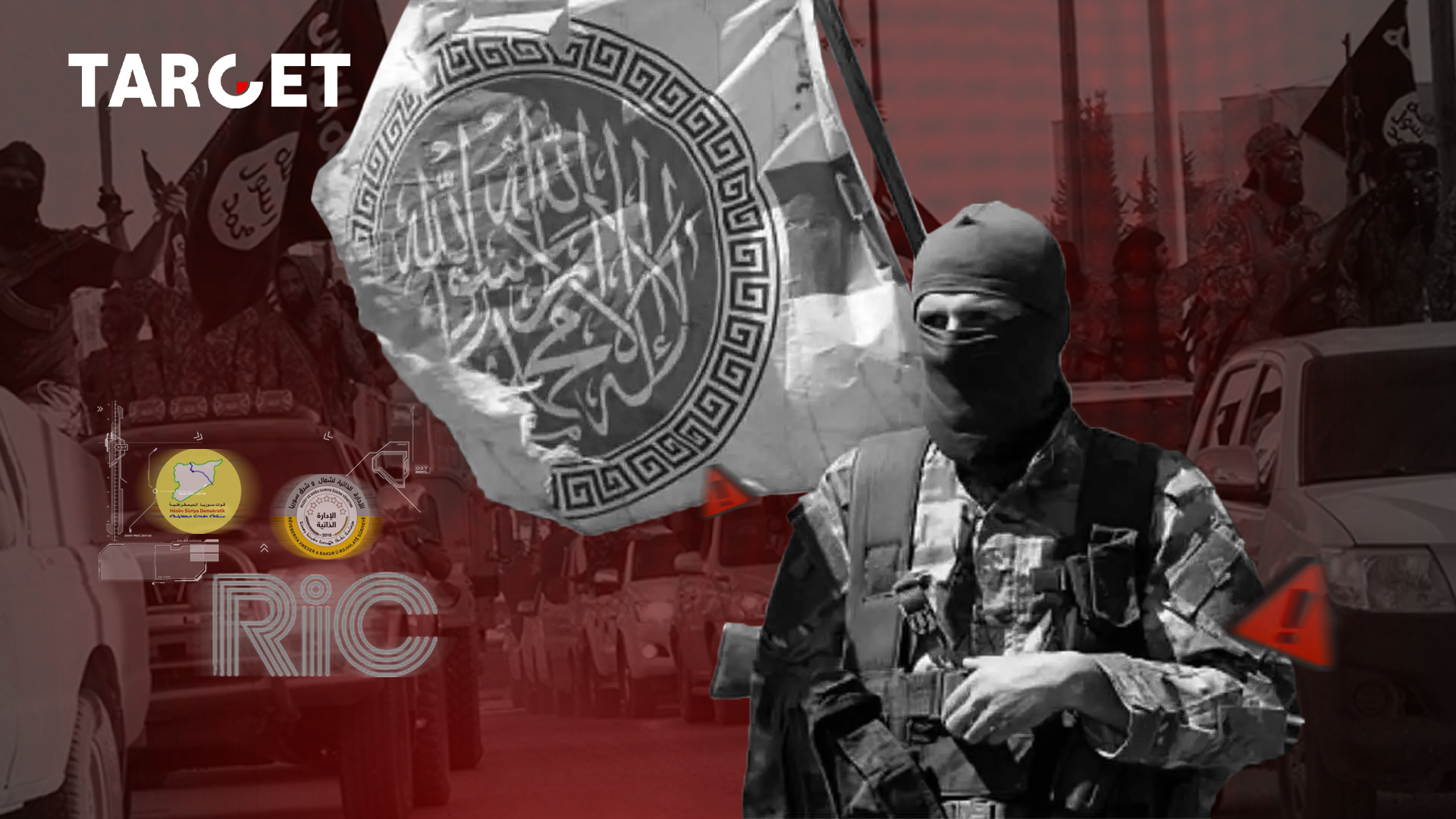The Rojava Information Center (RIC) published a report examining the political jihadist branch of Hayat Tahrir al-Sham (HTS) in the context of its efforts to portray itself as having abandoned its jihadist roots. Last year, HTS left Idlib, its stronghold, and began to settle in northern and eastern Syria under the control of the Syrian Democratic Forces (SDF). As it expands politically and militarily into northern Syria, the designated terrorist organization HTS is imposing its agenda as an increasingly powerful actor, sometimes with Turkey’s tacit approval and sometimes by creating tensions with Turkey.
Designated a terrorist organization by the UN, the US, Russia and Turkey, HTS, formed in January 2017, is a military and political organization affiliated with the Sunni Salafist movement. While widely recognized as jihadist, HTS is pursuing a new ‘political’ path, administering a de facto Islamic state in the Idlib region. In the public speeches of its leader, it was declared that it aims to overthrow the government of Syrian President Bashar al-Assad and establish an Islamic state throughout Syria. The RIC notes that the jihadist organization is playing an increasingly decisive role in the Turkish-occupied territories.
Links with al-Qaeda
Regarding the links between HTS and ISIS, the report notes that the presence of former ISIS commanders and members in the current ranks of HTS has been documented, but that the detachment between the two organizations is definitive. It adds, however, that the nature and strength of the connections between HTS and al-Qaeda remain controversial. According to the RIC, the fact that HTS has fought against groups with overt links to al-Qaeda may not be enough to rule out a possible covert link between HTS and al-Qaeda today.
A new form of jihadism
The RIC notes that the ideological differences between ISIS, al-Qaeda and HTS are minimal, emphasizing that all three belong to the Sunni revivalist Salafist movement. However, the research center notes that in practice, HTS’s application of the Salafist school is far from the concept of jihadism commonly used in the Western media. HTS has allegedly abandoned the transnational character of jihad and turned to ‘localisation’ in northwestern Syria. It has established the Syrian Salvation Government in Idlib, and this move has allowed a purely military organization to start using politics as a powerful tool. The RIC writes that the Doha talks between the Taliban and the US, and the subsequent negotiation of the US’ exit from Afghanistan, offer a parallel to this development within HTS.
An authoritarian regime
The report notes that there are signs of a covert authoritarian regime in the territory controlled by the jihadist organisation, and that arbitrary detention, torture, summary executions in secret prisons, suppression of dissent, religious discrimination and gender-based violence are the defining features of HTS’ rule. HTS has also control over several villages in the southernmost part of the Afrin district, securing a strategic piece of territory connecting Idlib statelet to the AANES-governed Shehba region. According to the report, there have been a number of events since the beginning of 2023 that indicate a steady expansion of HTS in the Turkish-occupied areas.
AANES’ proposal is a solution
The report concludes by noting the increasing presence of HTS in Turkish-occupied areas to the detriment of the SDF, despite Turkey’s official designation of HTS as a terrorist group. Noting that these developments could lead to the SDF being completely replaced by HTS, the RIC predicts that HTS could be in the spotlight as a potential solution provider in the context of reconciliation between Ankara and Damascus. The RIC stresses that the democratic and multi-ethnic governance proposed by the AANES has in many ways proved its worth as a solution for the northern and eastern regions of Syria. It concludes that a future in which AANES remains in the political background is unlikely to bring real and lasting security and stability to the Syrian people. The information center urges the international community to be wary of considering the expansion of HTS into Turkish-occupied areas controlled by the SNA as a reasonable step towards improving the dire human rights situation there.

